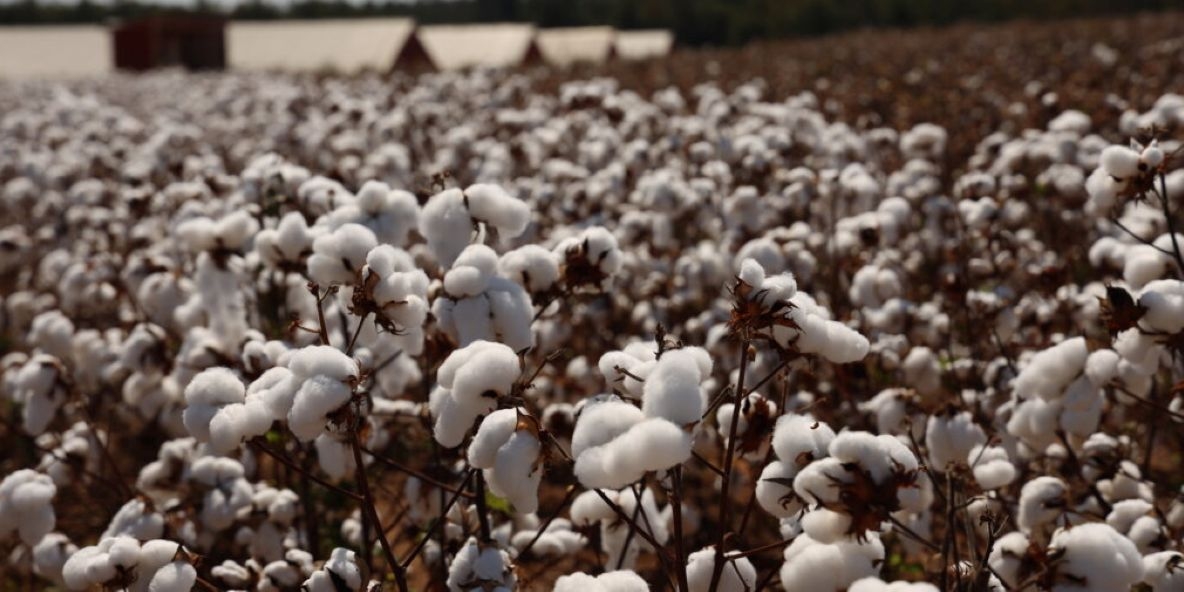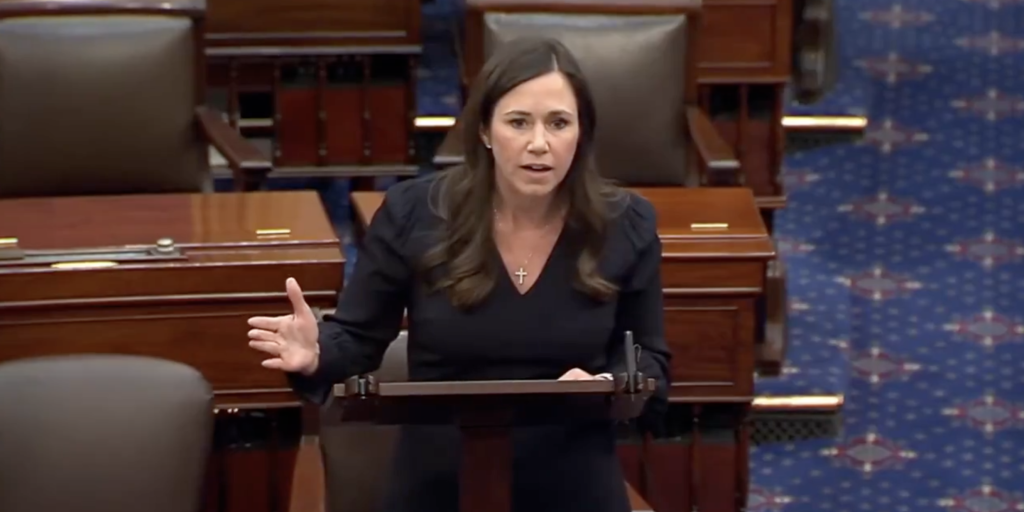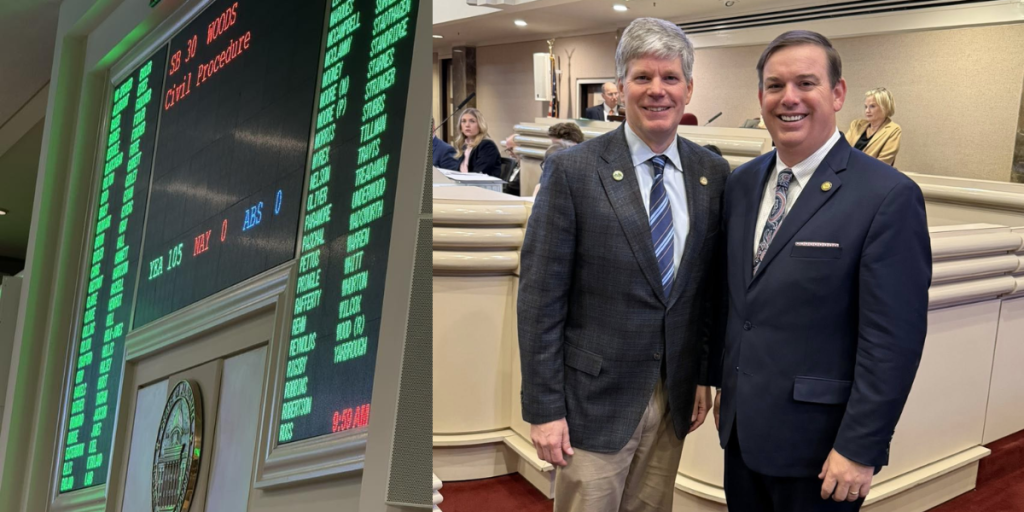With U.S. Senate passage of President Donald Trump’s “One Big, Beautiful Bill,” farm country today inched one step closer to a critical increase in the farm safety net, plus record tax cuts.
The measure heads back to the House for reconciliation following a 51-50 vote.
Alabama Farmers Federation National Affairs Director Mitt Walker said provisions in the bill are a financial lifeline for farmers facing the worst economic crisis since the 1980s. It’s particularly important with two farm bill extensions in the rearview mirror and limited hope in sight for a new farm bill, he added.
“Through increased reference prices, a jump in base acres and other key provisions, this bill has the chance to have a real, positive impact on Alabama farm families,” Walker said. “We especially thank Alabama Republican Sens. Tommy Tuberville and Katie Britt for their work. They have repeatedly gone to bat for Alabama farmers and landowners while championing this common-sense legislation. We appreciate their support and hope their colleagues in the House will move quickly to pass this bill before President Trump’s July 4 deadline.”
The bill would increase spending on farm bill programs by about $66 billion, with $50 billion provided through Price Loss Coverage for row crops, largely offset by cuts to the Supplemental Nutrition Assistance Program (SNAP). The legislation would lower crop insurance premiums and provide new funding for trade promotion, agricultural research, animal health and disaster assistance.
Agriculture-related provisions in the Senate bill include:
- Raising reference prices 10-20% per commodity.
- A one-time voluntary allocation of 30 million new base acres.
- Increasing Title 1 payment limitations from $125,000 to $155,000 while adjusting them annually for inflation.
- Modifying the Livestock Indemnity Program (LIP) to include a 100% payment rate for predation losses due to black vultures (a federally protected species which has been known to kill cows and baby calves) as well as a supplemental payment for loss of unborn livestock. LIP would include a 75% payment rate for losses due to adverse weather.
- Changing qualification for the Livestock Forage Disaster Program (LFP). Farmers would be eligible for one monthly payment if the U.S. Drought Monitor indicates a D2 (severe drought) level for four or more weeks or two monthly payments if D2 for any seven out of eight weeks.
- Expanding Emergency Assistance for Livestock, Honeybees, and Farm-Raised Fish (ELAP) eligibility to include catfish at a minimum payment rate of $600 per acre and honeybees when mortality exceeds 15%. For program year 2024, the mortality threshold was 24%.
- Establishing the Poultry Insurance Pilot Program for contract poultry growers experiencing loss due to extreme weather.
- Funding the Feral Swine Eradication and Control Pilot Program at $15 million per year for FY25-FY31.
Sen. John Boozman, R-Ark., chairs the Committee on Agriculture, Nutrition and Forestry and hailed the bill’s movement through the upper chamber.
“Passage of this legislation is critical to delivering the promises made to the American people by President Trump,” he said. “We make common-sense reforms to SNAP to ensure the program operates efficiently, is accountable to the taxpayers and helps those who truly need it. There is also good news for hardworking farmers, ranchers and producers who, for too long, were forced to operate under outdated policies.”
He continued, “Our investments in farm country will support the long-term success of family farms and America’s agriculture industry, providing desperately needed and improved risk management tools, as well as a modernized farm safety net.”
Courtesy of ALFA Farmers













